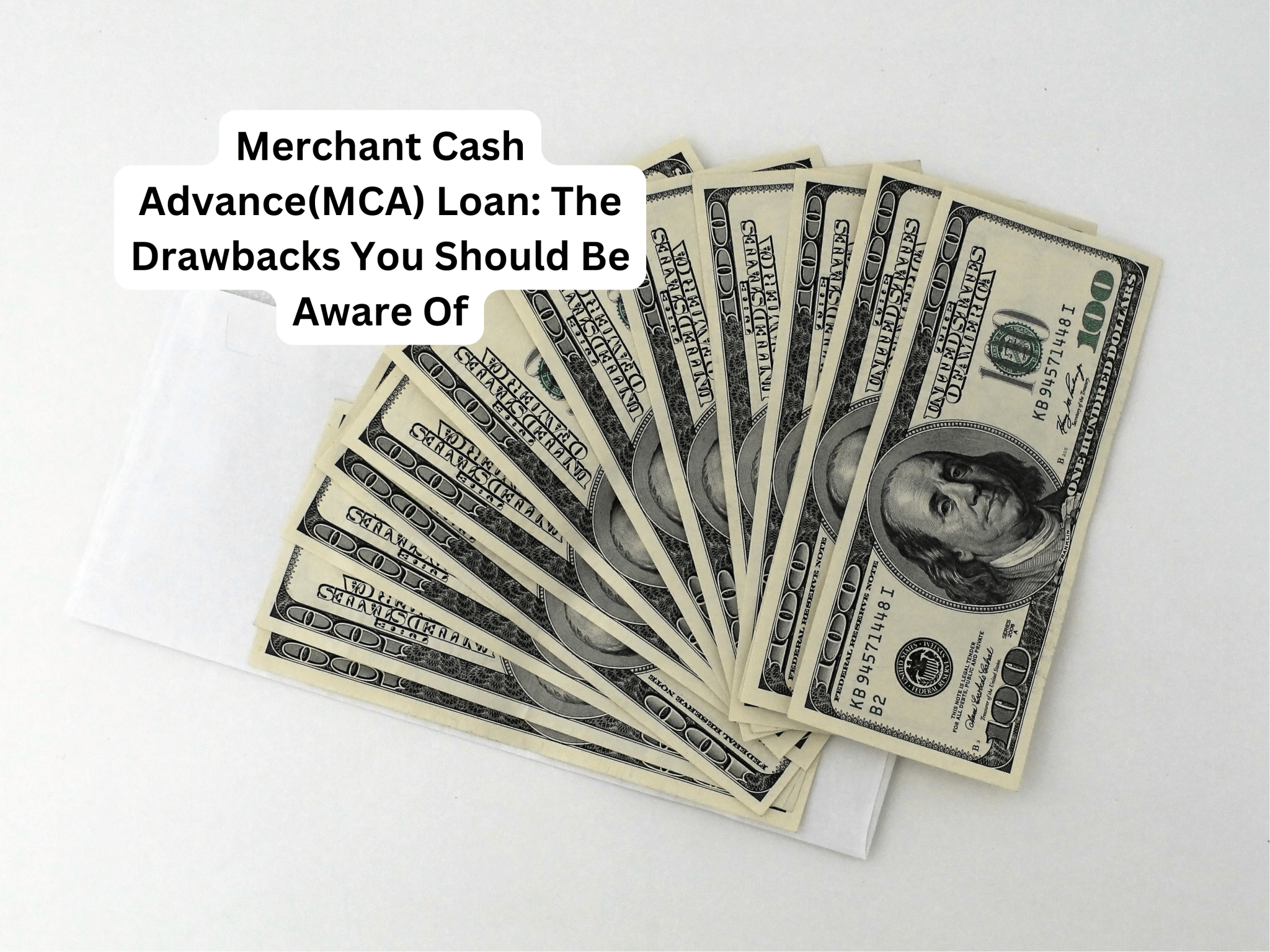Merchant Cash Advance(MCA) Loan: The Drawbacks You Should Be Aware Of

What is a merchant cash advance loan?
A merchant cash advance (MCA) is a type of financing option for businesses that need quick access to capital. However, it’s important to note that an MCA is not technically a loan, but rather a cash advance based on a business’s future credit card sales or other daily revenue streams.
How does a merchant cash advance loan work?
Here’s how an MCA loan typically works:
- Advance Amount: A business owner applies for an MCA and is offered an upfront lump sum of money, which is the “advance amount.” This amount is determined based on the business’s average daily credit card sales or other daily revenue.
- Repayment Structure: Instead of fixed monthly payments, the MCA is repaid through a percentage of the business’s daily credit card sales or daily revenue. This is known as the “holdback” or “retrieval rate.” The MCA provider deducts a fixed percentage of each day’s sales until the advance, plus fees, is fully repaid.
- Fees: MCA providers charge fees that are typically stated as a factor rate. The factor rate is a decimal number that is multiplied by the advance amount to determine the total repayment amount. For example, if you receive a $10,000 advance with a factor rate of 1.3, you would repay a total of $13,000.
- Repayment Duration: The repayment period for an MCA is typically shorter than traditional loans, often ranging from a few months to a year. The repayment term is determined by the daily credit card sales and the retrieval rate.
Cons of merchant cash advance loans
Before making the decision that a MCA loan is right for your business, it is important to be educated with the drawbacks and explore alternative forms of business funding.
- High Costs: MCA fees can be expensive, often resulting in a high effective APR (annual percentage rate).
- Daily Repayments: The daily holdback can impact a business’s cash flow, especially if sales are inconsistent.
- Lack of Regulation: MCA agreements are not regulated like traditional loans, which can leave businesses vulnerable to predatory lending practices.
What happens if you default on a merchant cash advance loan?
Defaulting on a merchant cash advance (MCA) can have serious financial consequences for a business. When a business fails to meet the agreed-upon daily repayment terms, it may trigger a series of actions by the MCA provider. Typically, the provider will start debiting larger daily amounts from the business’s credit card sales or revenue to recoup the outstanding balance, which can put a strain on the company’s cash flow. Additionally, late fees and penalty charges may accrue, further increasing the cost of the MCA. In some cases, MCA providers may resort to legal action or pursue a judgment against the business to recover their funds. Defaulting on an MCA can also harm a business’s creditworthiness and make it more challenging to secure future financing on favorable terms. It’s crucial for businesses to carefully assess their ability to meet the daily repayment requirements before entering into an MCA agreement and explore alternative funding options to avoid the risks associated with default.
Enlist The Help Of A Professional
If you have defaulted on your MCA Loan or are looking for a way to increase cash flow, it may be in your best interest to enlist the help of a professional. CuraDebt has a commercial debt counseling program and has been helping individuals and small businesses settle their debts for over 21 years nationwide making the company and team one of the oldest and most experienced in the industry. Contact us toll free today for a free consultation. 1-877-504-0981. Take advantage of learning how we may be able to assist you. Not only do we handle individual and business debt relief, we also offer tax relief.
